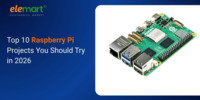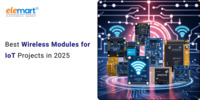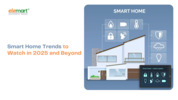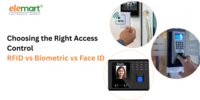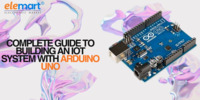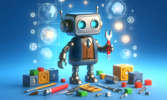- Jan 15, 2026
Share this post on:
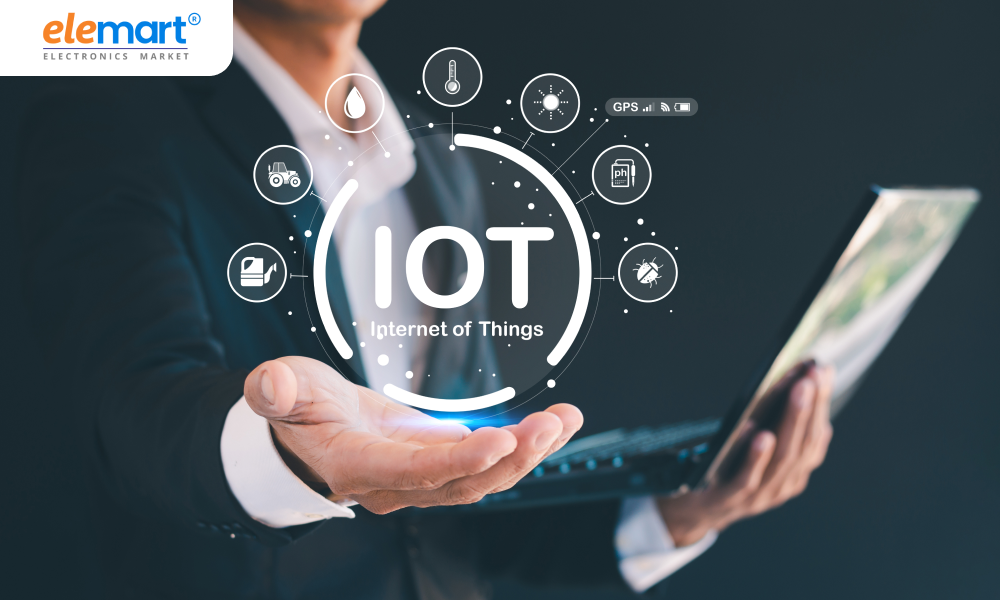
The Internet of Things (IoT) is revolutionizing the way we interact with the world around us. With the power to connect everyday devices to the internet, IoT is making life smarter, more efficient, and seamlessly connected. From smart home solutions to advanced smart parking systems, the potential of IoT is immense. In this blog, we’ll explore how IoT is crafting smarter systems for the future and how you can leverage IoT to create innovative solutions.
Understanding IoT: The Backbone of Smart Systems
At its core, IoT is the network of physical objects that are embedded with sensors, software, and other technologies, allowing them to connect and exchange data with other devices and systems via the internet. These objects range from everyday household appliances like refrigerators and light bulbs to industrial machines, vehicles, and even city infrastructure. IoT’s power lies in its ability to turn ordinary objects into intelligent, responsive systems that can communicate and act based on real-time data.
How IoT is Shaping Smart Home Solutions
One of the most exciting applications of IoT is in the realm of smart home solutions. The concept of a smart home revolves around creating an environment that is controlled and automated through IoT-enabled devices. From lights that turn on when you enter a room to thermostats that learn your preferences, the possibilities for a fully connected home are vast.
One of the key components of smart homes is the smart home controller hub, which acts as the central brain of the entire system. This hub connects various smart devices in the home—lights, thermostats, security cameras, and even smart switch boards—allowing users to manage them from a single interface, whether it’s a smartphone app or voice commands.
Smart Door Locks: Enhancing Home Security
One of the most popular and essential innovations in smart homes is the smart door lock controller. Traditional locks are vulnerable to being picked or compromised, but smart locks offer a more secure and convenient solution. These locks can be controlled remotely through your phone, provide access to authorized users, and even monitor entry and exit times. By integrating smart door lock controllers with other smart systems in your home, you can create a fully secure and automated environment that enhances both convenience and safety.
IoT and Smart Parking Solutions: Revolutionizing Urban Infrastructure
As cities become increasingly populated, parking has become a growing challenge. IoT-powered smart parking solutions are offering innovative ways to address this problem. With the help of IoT sensors, parking spaces can be monitored in real-time to detect available spots. This information is then communicated to drivers, reducing the time spent searching for parking and minimizing traffic congestion.
Furthermore, smart parking systems can be integrated with mobile apps that allow users to reserve parking spots in advance. By creating an interconnected network of smart parking spaces, cities can optimize parking availability, reduce traffic, and enhance the urban experience for both drivers and pedestrians.
Building IoT Systems: The Role of Development Boards and Components
The foundation of every IoT solution is the hardware and software that make it possible. When building IoT systems, engineers and developers rely on tools such as IoT development boards to create prototypes and fully functional products. These boards, such as Arduino and Raspberry Pi, come equipped with processors, memory, and communication capabilities, allowing developers to create intelligent systems.
Additionally, the role of electronic modules and displays in IoT development cannot be overstated. These components are used to integrate sensors, actuators, and displays into devices, giving them the ability to collect data and provide feedback to users. Whether it’s a smart thermostat that adjusts the temperature based on your preferences or a smart switch board that controls the lights and appliances, these components bring IoT systems to life.
The Importance of Microcontrollers in IoT Development
When it comes to building efficient and cost-effective IoT solutions, microcontrollers play a crucial role. A microcontroller is a small computer on a chip that performs the primary tasks of a device. In the context of IoT, microcontrollers are responsible for processing the data collected by sensors, executing commands, and communicating with other devices in the network.
In India, many online platforms specialize in offering microcontrollers India online to developers and hobbyists. These microcontrollers are essential for building prototypes and commercial IoT products. Whether you're working on a smart home solution or a complex industrial automation system, microcontrollers are at the heart of IoT innovation.
Integrating IoT with Everyday Life: Real-World Applications
IoT is not just limited to smart homes or cities; it is making its way into every aspect of our daily lives. From healthcare to agriculture, IoT systems are transforming industries. Here are some notable examples:
- Healthcare: Wearable devices like smartwatches collect health data (heart rate, blood pressure, etc.) and send it to doctors for remote monitoring, improving patient care and reducing hospital visits.
- Agriculture: IoT sensors monitor soil moisture and weather conditions, optimizing irrigation systems to save water and enhance crop yield.
- Industry: IoT devices track machine performance and maintenance schedules, minimizing downtime and maximizing productivity.
By combining electronic modules and displays, microcontrollers, and powerful IoT development boards, businesses and developers are able to create highly efficient systems that make a positive impact on the environment, economy, and society.
The Future of IoT: Challenges and Opportunities
While the future of IoT is promising, it’s not without its challenges. The vast amount of data generated by IoT devices raises concerns about privacy and security. To build smart systems that truly work, developers must prioritize data security and ensure that systems are not vulnerable to hacking or misuse.
However, the opportunities presented by IoT are immense. As technology advances and more devices become connected, we can expect even greater innovation. The evolution of smart homes, cities, healthcare, and industrial automation will continue to depend on IoT, creating new possibilities for convenience, sustainability, and efficiency.
Conclusion
The power of IoT lies in its ability to connect and automate systems, making everyday tasks smarter and more efficient. From smart home solutions like smart door lock controllers and smart switch boards to smart parking solutions and industrial applications, IoT is shaping the future in ways we never imagined. With the right tools—IoT development boards, electronic modules, and microcontrollers—developers are crafting systems that will make the world smarter and more sustainable. As IoT continues to evolve, the future is bright, and the possibilities are limitless.
For those looking to explore the world of IoT and get the right components for their projects, an online electronics components store offers a wide range of products, including everything you need to build the smart systems of tomorrow. Whether you're a hobbyist or a professional, IoT has the power to transform your ideas into reality.
